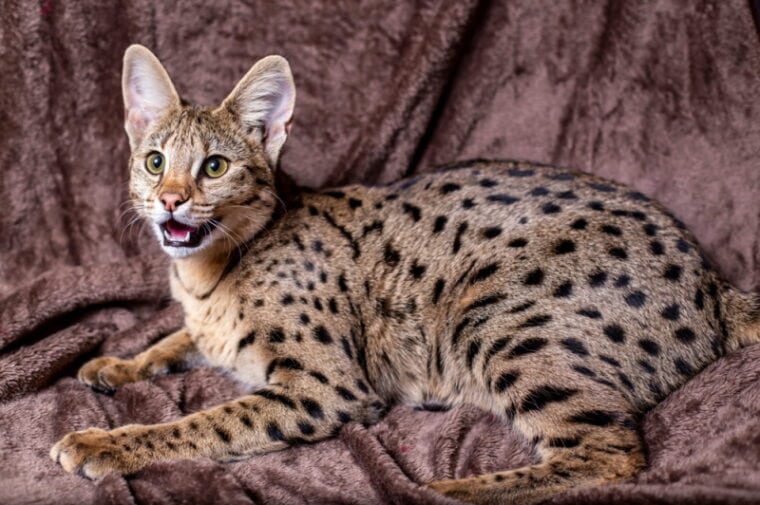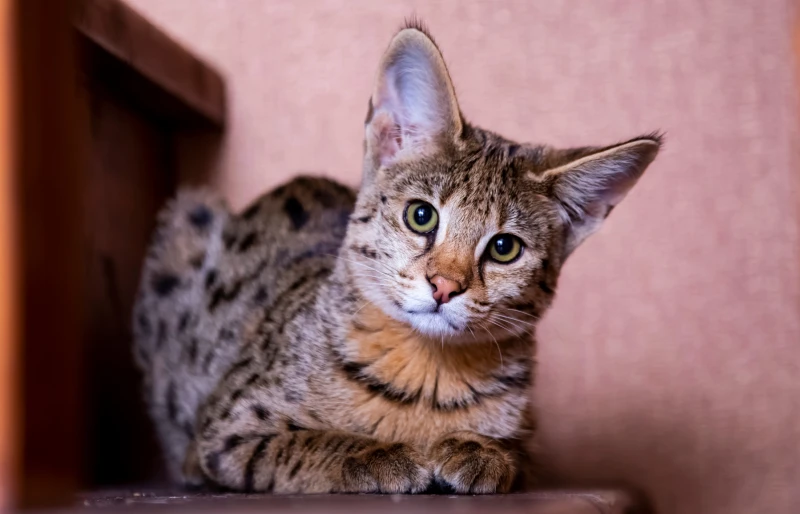
One of the Savannah cat’s most striking features is their beautiful, spotted coat that can come in a variety of colors and patterns. The Savannah’s coat is also very easy to care for since it does not shed much and only requires minimal grooming to keep it in good condition. In this post, we’ll explore more about what it’s like to care for a Savannah cat’s coat and whether or not these cats are considered hypoallergenic.
Are Savannah Cats Hypoallergenic?
This question has stirred quite a bit of debate in the cat world, with some arguing that Savannahs are hypoallergenic and others arguing that they are not. Though Savannah cats don’t shed as much as some other cat breeds and are advertised as “hypoallergenic” by some breeders, this doesn’t guarantee that they won’t cause an allergic reaction.
The term “hypoallergenic” is ultimately a marketing term used to describe a cat that is less likely to cause an allergic reaction because they don’t shed much, but it doesn’t mean that the risk is completely eliminated.
It’s commonly thought that allergies are triggered by pet hair, but this isn’t the case. People with pet allergies1 are allergic to the dander (dead skin flakes) that animals shed, and all cats shed dander, even if some shed it more than others. This includes the low-shedding Savannah cat.
For this reason, consider whether your allergies can be managed around a Savannah cat if you’re planning on acquiring one. Some people manage to minimize their allergy symptoms and live harmoniously with cats with thorough cleaning routines and other methods of reducing allergens around the home, like using an air purifier with a HEPA filter.

How to Care for a Savannah Cat’s Coat
The Savannah cat’s brushing needs are very basic. As a rule, you’ll only need to brush your Savannah cat’s coat once per week to keep it in good condition, get rid of dead hairs, and distribute healthy oils throughout the skin and coat.
During shedding seasons (spring and fall), your Savannah cat may shed a bit more than usual and you’ll likely see more hair around your home. Don’t be alarmed—as long as your Savannah cat is otherwise healthy, this is nothing to worry about. You might need to crack out the brush every day for a while, but, even during shedding season, a Savannah cat won’t shed a huge amount.
If you think your Savannah is losing an excessive amount of hair, however, or has started grooming excessively or displaying signs indicative of a skin condition (dryness, flakiness, redness, etc.), please take them to see a vet.
When you're grooming your own pet, choosing the right pet shampoo is half the battle. We recommend Hepper's Colloidal Oatmeal Pet Shampoo line because the all-natural, pet-safe formula does a great job of cleaning and moisturizing while avoiding irritation and itching. These soothing shampoos feature oatmeal and aloe vera and neither of them contain sulfates, phthalates, dyes, or soaps. Your pet will love this shampoo as much as you do! Now you just have to choose which one your pet will love best. Here’s a quick guide to help you choose the right option for your pet’s next bath!
 |
 |
|
|---|---|---|
| Hepper Colloidal Oatmeal Pet Shampoo | Hepper Waterless No Rinse Pet Shampoo | |
| Natural Ingredients |
Natural Ingredients:
|
Natural Ingredients:
|
| Made in USA |
Made in USA:
|
Made in USA:
|
| Safe for cats & dogs |
Safe for cats & dogs:
|
Safe for cats & dogs:
|
| Soothes dry skin |
Soothes dry skin:
|
Soothes dry skin:
|
| Waterless, no rinsing required |
Waterless, no rinsing required:
|
Waterless, no rinsing required:
|
At Pet Keen, we've admired Hepper for many years, and decided to take a controlling ownership interest so that we could benefit from the outstanding designs of this cool cat company!

Savannah Cat: General Care Tips
“Grooming” is a term that many associate only with brushing and combing, but it’s an umbrella term for so many aspects of cat care. In addition to weekly brushing, here are some tips for keeping your Savannah cat healthy, active, and comfortable:
Conclusion
Though Savannah cats can be a bit of a challenge in a few ways due to their high energy levels and need for a lot of attention, their coats are generally easy to care for as these cats don’t shed much, especially when compared to heavy-shedding breeds like the Persian and Maine Coon.
Nevertheless, it’s important to keep up with weekly brushing and other general care routines surrounding the nails, teeth, ears, and diet to make sure your Savannah cat has the best chance of a great quality of life.
- Related Read: Are Savannah Cats Dangerous? What You Need to Know!
Featured Image Credit: Kolomenskaya Kseniya, Shutterstock






